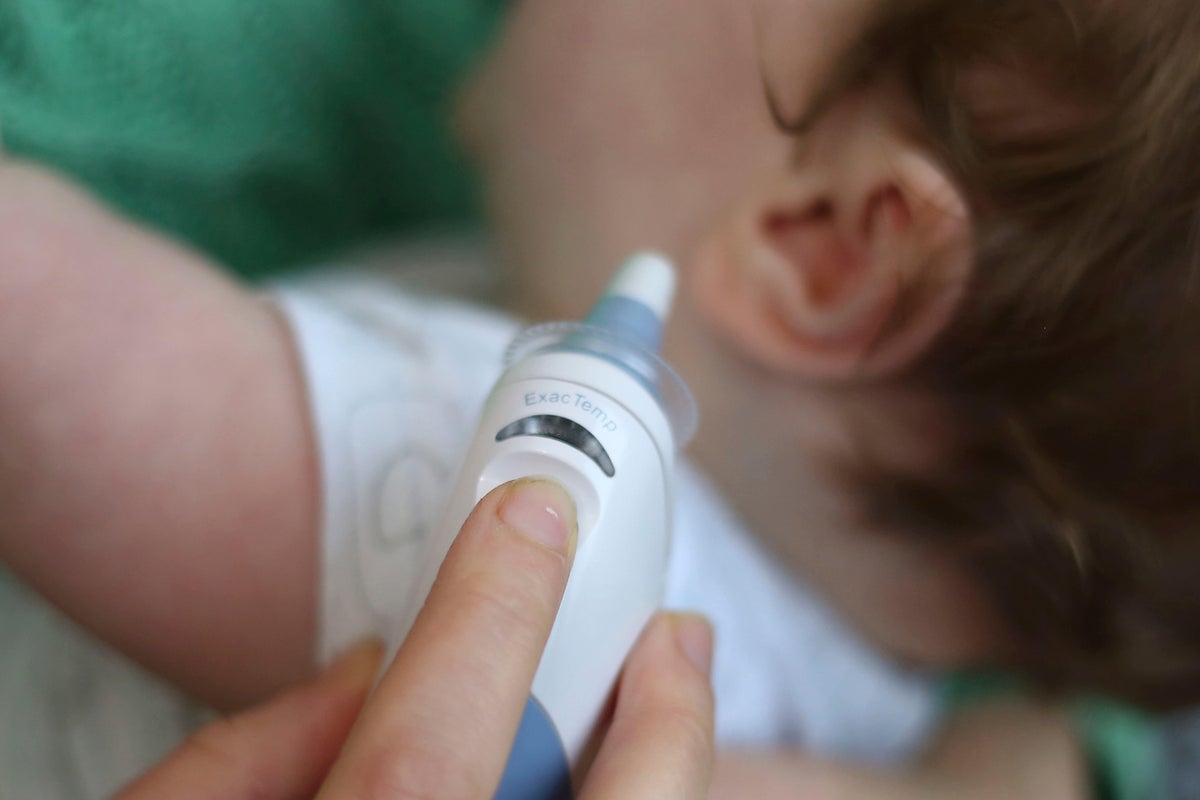
Downing Street has urged parents to be on the “lookout” for symptoms after a rise in infections caused by the Strep A bacteria.
Officials said they can “fully understand” that parents are concerned by rising cases but stressed the NHS is “well prepared” for such situations.
Number 10 said it was not aware of any current shortage of the antibiotic amoxicillin after the head of the Association of Independent Multiple Pharmacies, Leyla Hannbeck, tweeted that “pharmacies are reporting shortage of amoxicillin liquid for children at a time when cases of Strep A are rising”.
Online NHS information suggests Strep A infections such as scarlet fever can be treated with the antibiotics penicillin and amoxicillin.
Across the UK at least seven children have died with an invasive form of the Strep A bacteria.
There were reports on Monday evening of an eighth death. The UK Health Security Agency (UKHSA) has said it will not comment on individual cases.
Asked about the recent rise in cases, the Prime Minister’s official spokesman said: “We are seeing a higher number of cases of Group A strep this year compared to usual.
“The bacteria we know causes a mild infection which is easily treated with antibiotics and in rare circumstances it can get into the bloodstream and cause serious illness.
“It is still uncommon, but it’s important parents are on the lookout for symptoms.
“But the NHS is well prepared to deal with situations like this, working with the UK Health Security Agency.”
He said any parents who are concerned should contact the NHS.
Asked if there was a shortage of the drug used to treat the infection, the spokesman added: “It’s important to reassure parents that there is no current shortage as far as we’re aware.
“Generally speaking, we have well established procedures to deal with any potentials for medicines shortages and to prevent them as we saw during the pandemic.”
Strep A infections are usually mild and can be easily treated with antibiotics – illnesses caused by the Group A strep bacteria include the skin infection impetigo, scarlet fever and strep throat.
There has been a big leap in the number of scarlet fever cases.
There were 851 cases reported in the week November 14 to 20, compared to an average of 186 for the same timeframe in previous years.
Symptoms of scarlet fever include sore throat, headache, and fever, along with a fine, pinkish or red body rash with a “sandpapery” feel.
On darker skin the rash can be more difficult to detect visually but will have a “sandpapery” feel.
If a parent or carer suspects scarlet fever they should call their GP or 111 as prompt treatment with antibiotics can prevent serious illness and stop the spread of infection.
Strep A infections can develop into a more serious invasive Group A Strep (iGAS) infection – though this is rare.
Officials have noticed an increase in iGAS cases this year, particularly in children under 10.
It comes as experts from the UK Health Security Agency (UKHSA) said that they were exploring whether the rise in cases was due to a lack of immunity due to Covid lockdowns.
Asked about the rise in cases, UKHSA chief medical adviser Dr Susan Hopkins told BBC Radio 4’s Today programme: “Firstly, I think that we’re seeing a lot of viral infections circulate at the moment and these bacterial infections can come as an addition on top.
“Secondly, we’re back to normal social mixing and the patterns of diseases that we’re seeing in the last number of months are out of sync with the normal seasons as people mix back to normal and move around and pass infections on.
“We also need to recognise that the measures that we’ve taken for the last couple of years to reduce Covid circulating will also reduce other infections circulating and so that means that as things get back to normal, these traditional infections that we’ve seen for many years are circulating at great levels.”
Our priority at this difficult time is to support our pupils and to ensure that the guidance of the UKHSA is being communicated to parents and followed meticulously— Richard Russell, headmaster of Colfe's School
Asked whether children do not have the normal immunity they would have built up during a normal period, Dr Hopkins added: “So of course, that’s one of the potential areas that we’re exploring.
“We expect that certain amount of children will have these infections each year and therefore they will have a level of immunity.
“So we’re seeing more now than we have seen for the last two years where there were very very low amounts of infections seen.”
The seventh death from Strep A was of a Year 8 secondary school pupil in south east London.
In a statement, Richard Russell, headmaster of Colfe’s School, said: “It is with regret that we must confirm that a Year 8 pupil at Colfe’s died on Tuesday, November 29, as a result of invasive group A streptococcal infection.
“This wholly unexpected tragedy has affected all members of the school community, including pupils, parents and staff.
“We are doing what we can to support the pupil’s family who are seeking to come to terms with their devastating loss.
“Our priority at this difficult time is to support our pupils and to ensure that the guidance of the UKHSA is being communicated to parents and followed meticulously.”







